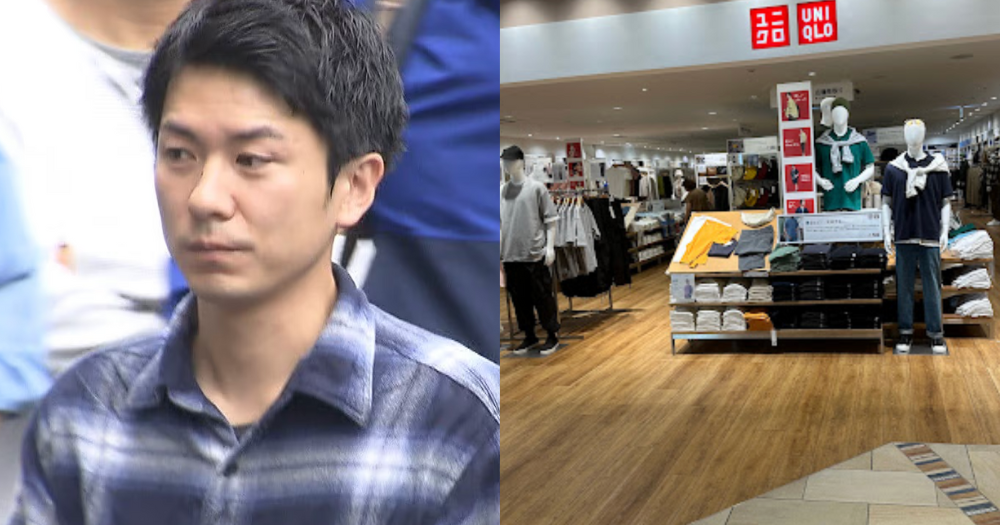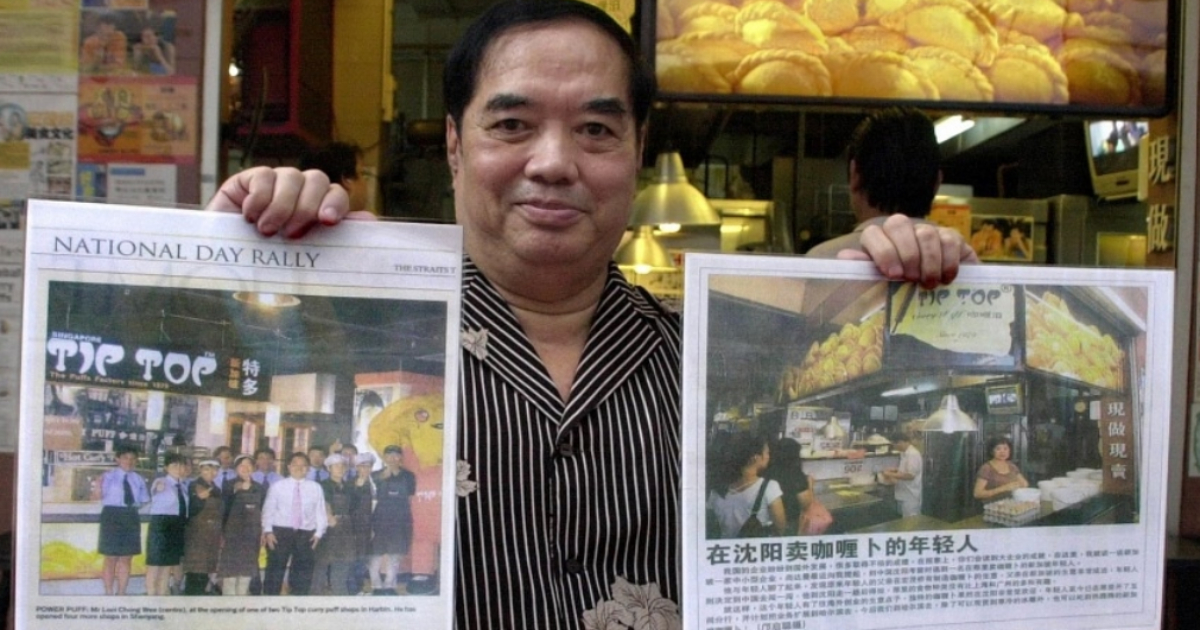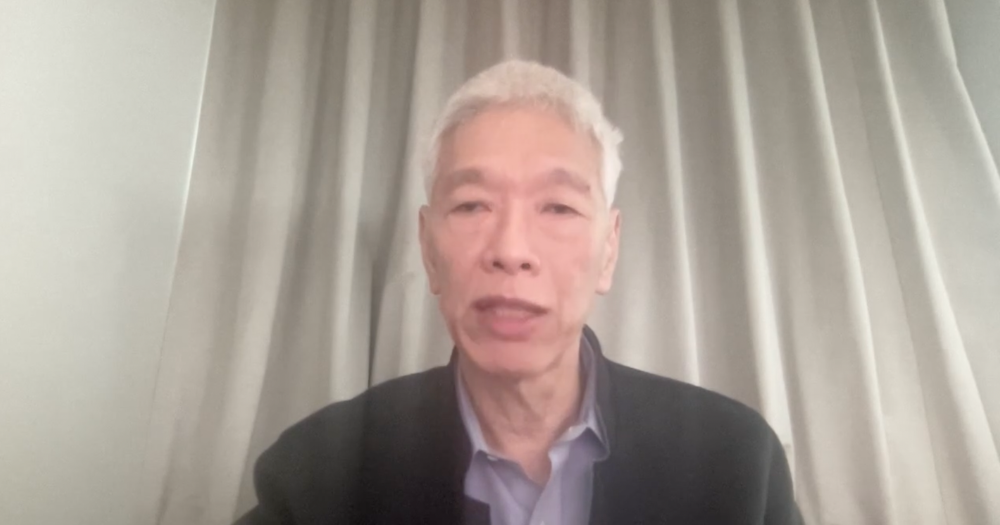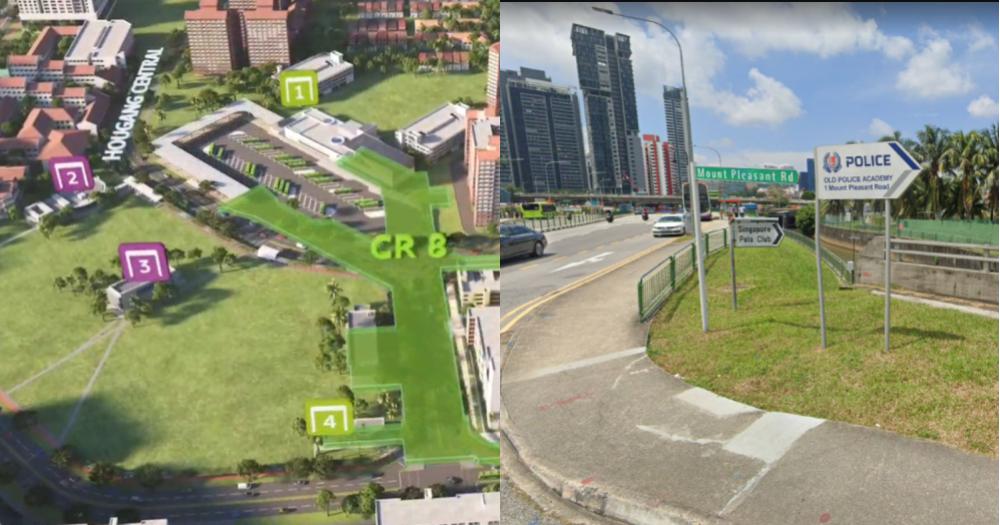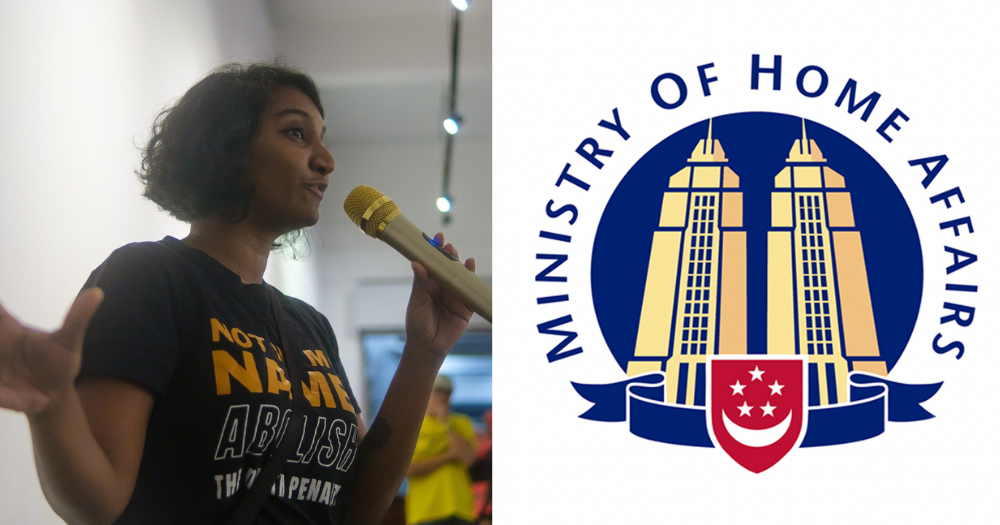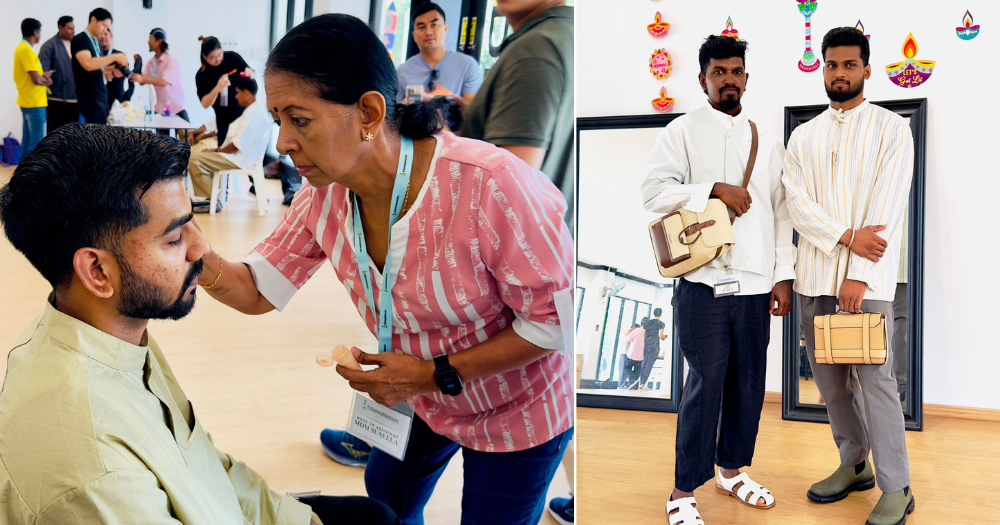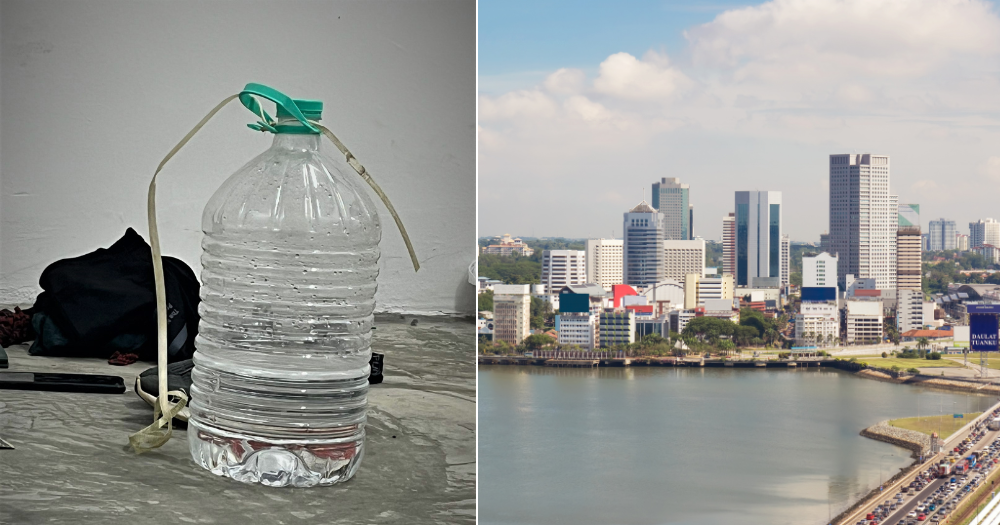For those too young to remember, here are 3 high-profile court cases in S’pore that kept the public on edge right till the end
See how the Singapore Courts decide if the accused get their just desserts or walk away clean.

Crime should never be so fascinating.
But the reality is that it is.
When it comes to high-profile cases, the public is kept on edge as they partake in the revelations – the sordid details, the motivations of the people involved, the impact on the victims, and the eventual verdict that the judge will pass.
Talk about being drawn to the transgressive.
Here’s the good news, though.
Far from being a hotbed of scandal, the public being kept abreast of the latest developments and revelations in court is a sign of a functioning society.
Because, believe it or not, court hearings in Singapore are generally public and open for you and me to attend.
From the public gallery, anyone can scrutinise the system to ensure it is fair and impartial with all the evidence and arguments laid out in full.
High-profile cases that have passed through the courts will typically see the number of people scrutinising it grow exponentially.
The freedom to access and report on information is a hallmark of transparency and accountability, alongside the right to feel safe and be granted access to justice.
Here are three past cases in Singapore that live rent-free in many of our heads that young people should know about as they are telling of how the courts reached their verdicts unmolested by popular opinion or pressures from without.
1. Ng Boon Gay sex-for-contracts case
Back in 2012, a high-profile individual was hauled to court to face corruption charges after he was accused of obtaining sexual gratification to further the business interests of a woman he was acquainted with.
The accused, Ng Boon Gay, was the former director of the Central Narcotics Bureau (CNB).
At 46 years old, he was seen as someone who was in the prime of his career when he was arrested on Dec. 19, 2011.
He was charged on Jun. 12, 2012 with four counts of obtaining oral sex from Cecilia Sue Siew Nang between July and December 2011.
Sue was a female executive of a subcontractor to the CNB.
Ng was accused of helping to further the business interests of Sue's employers in business deals with CNB.
The case attracted significant attention in Singapore, owing to Ng's high-profile position and the seriousness of the allegations.
The nature of the acts were also made public, such as how the sexual encounters between Ng and Sue, occurred between 20 and 30 times.
However, Ng was eventually acquitted of all charges on Feb. 14, 2013, on Valentine's Day, nonetheless.
This was after a 15-day trial spanning four-and-a-half months, with the ruling that the prosecution had not proven its case beyond a reasonable doubt.
Ng blurted out in Mandarin in court when the not guilty verdict was delivered: "The law is fair, the law is just."
His supporters applauded.
The rationale for the judge’s verdict was compelling.
The judge reasoned that the prosecution's case relied heavily on text messages and emails exchanged between Ng and Sue, which suggested a close personal relationship.
In other words, the judge ruled that the physical intimacy between the two stemmed from them being in a relationship, and not for contracts.
The Attorney-General's Chambers did not appeal against the decision.
TL;DR
The Singapore Courts determine case sentences based on legal precedents and the evidence presented and not influenced by external factors.
In this case, the courts acquitted a high-ranking official, demonstrating that guilt is not assumed.
The judge’s decision was independent and based solely on the evidence presented, concluding that the prosecution failed to prove the accused and the woman were engaged in a transactional relationship, ensuring a fair trial.
2. Peter Lim sex-for-contracts case
And if this turn of events in the Ng Boon Gay trial did not keep the public enthralled or shocked that it failed to lead to a conviction, another similar case came before the courts at around the same time.
This time it involved former Singapore Civil Defence Force (SCDF) chief Peter Lim Sin Pang, a veteran who spent 25 years in the public service, emerging at the pinnacle, before he was unceremoniously charged.
The similarities of the two men’s cases were almost uncanny.
Both men were arrested two weeks apart and both cases were brought to court in 2012, just that Lim’s trial started later as it was postponed to 2013.
The twist though?
It was a totally different result.
Lim was eventually found guilty of corruption for exchanging sex for contracts.
He was convicted on 31 May 2013 of one count of corruption after standing trial for a charge of obtaining oral sex from a woman in exchange for furthering the business interests of her then employer, an engineering firm.
He was sentenced to six months' jail on Jun. 13, 2013 when he was 53 years old.
In this case, the judge ruled that Lim had initiated the sexual encounter with sales director Angie Pang Chor Mui.
The judge found that Lim and Pang were not in an intimate relationship with each other and their interactions were transactional.
The sexual encounter was said to have happened in the car of Pang on May 2, 2010.
Some 10 months later, Lim tipped Pang off about the SCDF's need for certain products that Pang’s company manufactured.
The tender was called in April 2011 and Pang's company participated in it.
The judge rationalised that Pang must have considered that if she did not perform oral sex on Lim, their friendship might be jeopardised, or it might affect her company's business with the SCDF.
Lim was judged to have made Pang "an offer she could not refuse".
After the conviction, Lim admitted to seven other charges of receiving sexual favours from two other women.
The judge rebuked Lim.
She said: “Finally, I should add that with every misdemeanour that a public servant commits, especially a high ranking public officer, that it has the effect of lowering, in the eyes of the public, the standing of the institution he serves and unfairly casts a negative light on the public service as a whole.”
“With every public servant’s fall from grace, the confidence in the public service is affected and that is a fact which I could not ignore.“
She also said Lim ought to have known that engaging in a personal relationship with a general manager of a vendor company, especially one with ongoing and prospective dealings, puts him in a clear conflict of interest.
She added: "If he did not know that, then he has certainly made a wrong career choice in the last 25 years."
TL;DR
Despite similarities to the Ng Boon Gay case, Peter Lim’s conviction highlighted how the courts ruled impartially based on the facts and evidence presented, ensuring justice was served.
In this case, there was sufficient evidence in this instance to prove a transactional relationship between the accused and the woman involved.
3. Dan Tan match-fixing kingpin case
Even though crimes involving affairs of the heart and carnal pleasure make headlines easily, those involving obscene amounts of money due to criminal activities spanning a global scale, naturally pique people’s curiosity.
One such case involved a Singaporean man, who apparently left an international criminal footprint – but was never formally charged and convicted.
Tan Seet Eng, or Dan Tan, was known as the "boss" of the world's largest and most aggressive match-fixing syndicate.
He was wanted overseas for being a match-fixing kingpin, and it was precisely this involvement of a seemingly nondescript Singaporean that shocked many here.
Tan was arrested in Singapore during a 12-hour series of raids carried out on Sep. 17 and 18, 2013.
He was 48 years old then.
Tan allegedly started his match-fixing business in 2009.
However, he supposedly led a double life in Singapore, allegedly working as a salaried employee while heading the syndicate.
His friends described him as an "avid gambler" with a "keen eye for investments".
Tan supposedly frequented casinos as a high-roller, and bet on horse-racing and football.
Despite his wealth, he was "very low profile", and did not appear to wear expensive watches or flashy clothing.
He was also married thrice, and has three children.
His case was unique though.
Tan was issued detention orders by the Minister for Home Affairs under the Criminal Law (Temporary Provisions) Act (CLTPA), which allows suspects to be held by the police without trial for up to one year if they are deemed to pose a threat to public safety, peace and good order.
However, on Nov. 25, 2015, Tan was released from prison on an appeal petition two years after his initial detention.
This was after the Court of Appeal ruled that the initial Detention Order, issued under the CLTPA on Oct. 2, 2013, had to be set aside because the grounds stated in the order were defective.
The Court of Appeal said it did not find that the stated grounds for detention show that Tan's activities had a bearing on the public safety, peace and good order within Singapore.
The court’s decision illustrates the separation of powers in Singapore: The executive (aka the government), which formulates policy and administers the running of the state; the legislature (aka parliament), which makes laws; and the judiciary (aka the courts), which enforces and interprets them.
It reflects the judiciary’s autonomy in reviewing and ruling on the cases before them.
National University of Singapore (NUS) law professor and former Nominated Member of Parliament Thio Li-Ann said in an interview previously: "Simply put, the exercise of power under the CLTPA (by the minister in Tan's case) was not for a CLTPA stipulated purpose.”
"The courts will not accept as conclusive the executive's assessment that a person needs to be detained under the CLTPA. It will independently review the exercise of power and ensure it falls within the terms of the statute."
But Tan’s freedom granted by the court was short-lived.
Six days later, Tan was re-arrested for "suspected involvement in criminal activities" and again detained under the CLTPA – with a new detention order issued.
The new detention order set out the grounds that showed the extent of Tan's match-fixing activities from and within Singapore, and why this necessitates the issuance of a detention order under the CLTPA.
Tan was finally released in December 2019 on a Police Supervision Order but was never formally tried due to insufficient evidence.
He was 55 at that time.
TL;DR
The Court of Appeal ruled against Tan's detention under the Criminal Law (Temporary Provisions) Act, based on the reasons for the detention order.
This decision followed a thorough examination of the grounds, which revealed no substantial evidence of threats to public safety, peace, or order within Singapore.
This highlights the independence of Singapore's courts, demonstrating their ability to make decisions free from governmental influence, ensuring that judicial outcomes are based solely on legal merits rather than external influences.
Bonus case
4. Singapore Democratic Party (SDP) turns to courts to overturn POFMA ruling
As seen in the three cases above, the courts’ decisions can differ from public expectations.
The Singapore Legal system comprises three branches of the state: The Judiciary (comprising the courts system), the Executive (Cabinet), and the Legislature (Parliament).
This separation of powers ensures that no external body or influence can sway judicial decisions, reinforcing a system where justice prevails based on evidence, even in the most high-profile and influential cases.
What happens when one branch has to check on the powers of another branch?
This was what the Singapore Democratic Party (SDP) did when it secured a partial win in October 2021 in its court battle against correction directions issued under the Protection from Online Falsehoods and Manipulation Act (POFMA).
In other words, the party partially succeeded in appealing against a correction direction after turning to the courts.
SDP had received three correction directions from the Ministry of Manpower (MOM) in December 2019 for three online posts.
They were:
- An online article published in June 2019, titled, "SDP Population Policy: Hire S'poreans First, Retrench S'poreans Last";
- A Facebook post in November 2019 linking to the above article; and
- A Facebook advertisement in December 2019 containing a link to the article and a graph with a downward-pointing arrow, titled. "Local PMET Employment".
MOM said a graph by SDP that showed plunging employment of local professionals, managers, executives and technicians (PMETs) was false, and provided statistics to show that local PMETs employment had risen steadily since 2015.
It also said SDP's statement that its proposal comes "amidst a rising proportion of Singaporean PMETs getting retrenched" was also false.
Having failed in its attempts to override the correction directions, SDP went to court to set aside the three correction directions it received.
They argued on various grounds, including what the minister claimed SDP had said might not have been what SDP meant, as well as the burden of proof was on the minister or Attorney-General’s Chambers (AGC).
The High Court dismissed SDP’s application.
Thereafter, SDP appealed to the Court of Appeal.
The correction direction was partially set aside by the Court of Appeal as it was deemed that what the minister claimed the graph meant was not made out in the graph.
The court found that those who read the post would have understood "local" in the graph to mean only Singapore citizens, even though the minister believed the graph made a false statement that the employment of PMETs who are either Singapore citizens or Singapore permanent residents had gone down.
Chief Justice Sundaresh Menon, who heads the Judiciary, understood the SDP article’s thrust differently.
He was of the view that it was to target PMET Singaporeans who were displaced from jobs by foreigners, and to provide solutions, and it did not mention Singapore permanent residents.
TL;DR
Singapore Courts operate independently within the Judicial branch of Singapore's legal system, separate from the legislative and executive branches.
This separation of powers ensures that our legal system remains impartial and independent, playing a crucial role in maintaining checks and balances on government actions.
Conclusion
While crime and law stories may captivate our attention, they also serve as vital reflections of our society's legal principles and values.
These high-profile cases illustrate the courts' unwavering commitment to justice, where verdicts are rendered based solely on the evidence presented, without influence from public opinion or external pressures.
These cases remind us that Singapore's legal system is designed to uphold fairness and impartiality, ensuring that every citizen is subjected to the same standards of justice.
Top photo via Shutterstock via SG Courts
MORE STORIES








